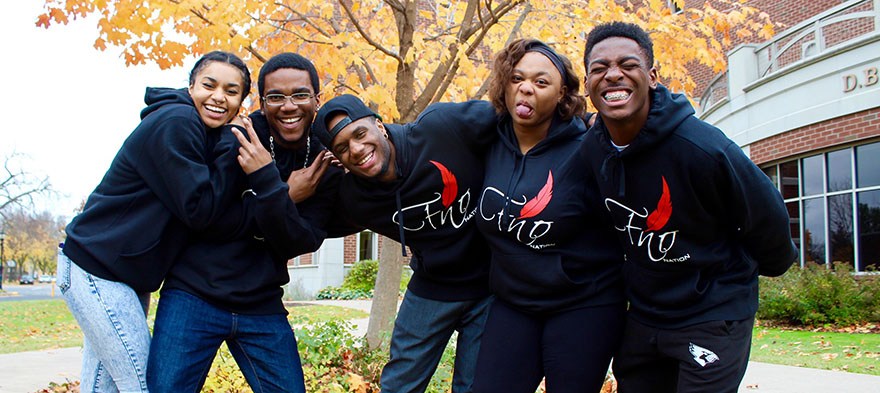Editor’s Note: This is a condensed version of Samantha Smylie’s speech to the 2018 graduating class at John Hope High School in Chicago. Hope is one of the high schools that will be closing as part of the plan to create a new high school in Chicago’s Englewood neighborhood. Smylie is a Hope High School graduate who earned a bachelor’s from Oberlin College in 2017.
I was expected to give you all a speech about perseverance, but I know that you all know what perseverance is. Throughout this year, this school has had to operate under the threat of closing.
Many people outside of this space do not realize that this school is a community. All of you have gained friends and connected with teachers and staff here. You have participated in after-school activities.
The uncertainty of this school closing at the end of the year or being phased out over a few years must have been scary. I want to applaud you all for making it through the year; for taking exams, applying for colleges, going to multiple interviews, going on college tours and maintaining good grades. That was perseverance.
There is another reason why I can’t give you all a speech about perseverance. I hate speeches about perseverance because they are usually boring, cliche and individualistic.
My success in graduating from an elite, private institution in Ohio was a collective effort. This speech will be about navigating college and it will focus on finding community, building a support system that works for you, and activism and advocacy.
College Is Difficult, Find a Community
I’m not going to lie—college is difficult.
You will be balancing academics, jobs, your social life, your mental and physical health. It can be difficult at first but it is not impossible.
The first thing I recommend any college student to do once you set foot on campus is to find a community. I define community as a group of people who have shared lived experiences and/or similar interests.
As a Black woman at a predominantly White college, I needed to find other Black kids to talk to. I joined ABUSUA, the Black Student Union. It was nice to have a space to unwind and be myself around people who understood me. I was able to meet and connect with Black professors on campus and Black alums.
ABUSUA was a perfect fit for me. There will be a million student organizations at your college. Some of them will be a perfect fit for you, others won’t. Go explore everything until you find a good fit.
Build a Support System
Once you find a community on campus, start building a support system. Some people might think that communities and support systems are the same. For me, that wasn’t the case.
I didn’t tell everyone in ABUSUA about my personal troubles at Oberlin. I depended on my friends, family, professors and staff at Oberlin.
My friends and my mom would sit with me for hours to talk about my frustrations with school or be there to console me after having a hard week. Professors were there to give me advice on my academic career or point me to other professors with similar research interests as me. Get a support system that will encourage your intellectual questions, help you set goals, and be there for you in your darkest time.
Don’t Be Afraid to Stand up for Yourself
During your time in college, you will need to be very vocal about your needs and even stand up for your peers. This is where advocacy and activism are important. I know that you all are capable of this because I was there when your peers protested at the Board of Education meeting back in February. I remember a student from Hope saying, “Whether you kill us fast or you kill us slow, you still kill us.”
Throughout college, there will be times when you need to shout about injustices happening on campus that harm you or the people you care about.
For me, this social justice work happened inside the classroom and outside of it. There were times when I had to confront my professors about erasing the experiences of Black and Brown people in our classroom. This might not seem like a big deal, but you risk failing a course for a semester for challenging a professor.
It was scary at first to go against my professors but I realized that it was important for me to make my voice heard in my classes. Outside of the classroom, my peers worked on issues that impacted the lives of Black and Brown students on campus and throughout the nation. My peers and I talked about and debated over police reform, prison abolition, immigration, healthcare, economics, freedom of speech and more. We constantly challenged ourselves.
To end, I want to say that college will be challenging and it should be. It should be a place for you to reflect on what you have been taught to believe, debate with your peers, learn new ideas and change over time. College campuses are huge spaces that feel lonely at first. But, once you find a community, build a support system, and find your voice it won’t be lonely anymore.
Samantha Smylie
Latest posts by Samantha Smylie (see all)
- Project Soapbox Allows Students to Speak Their Minds - December 7, 2018
- 3 Tips to Survive College From Someone Who Made It - July 3, 2018
